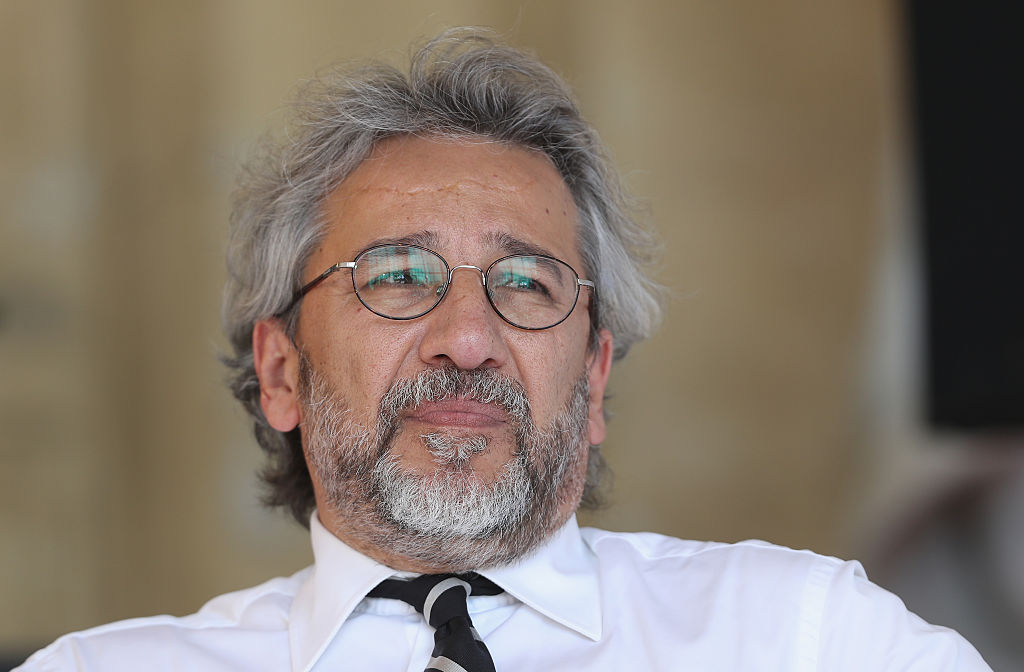|
In this mailing:
- Khaled Abu Toameh: Why Renewed US
Sanctions on Iran are Good News for Palestinians
- Burak Bekdil: Why Erdoğan's
Charm Offensive Falls Flat
by Khaled Abu Toameh • November
15, 2018 at 5:00 am
- What the Hamas
official is actually saying is that thanks to Iran's backing,
Hamas continues to hold hostage the two million residents of
the Gaza Strip, whose lives have been literally destroyed by
the Hamas leaders' policies.
- The message that Hamas
and PIJ are sounding is: How dare the US administration impose
sanctions on Iran, the only country that is helping us in our
effort to continue our terrorist attacks against Israel?
- The renewed US
sanctions on Iran are good news, however, for many Arabs and
Muslims who feel threatened by Tehran's actions and rhetoric.
Iran has long been systematically working towards undermining
moderate Arabs and Muslims in the region.
- The Palestinian
Authority and Abbas are actually attacking a US administration
that is seeking to undermine the enemies of Abbas: Hamas and
Iran. The Palestinian Authority is, thus, aligning itself with
its own enemies.

The US
administration has decided to reinstate the sanctions against
Tehran that were removed under the 2015 "nuclear deal."
These sanctions are part of Washington's effort to curb Iran's
missile and nuclear programs and diminish its influence in the
Middle East. Pictured: US President Donald Trump holds up a
memorandum that reinstates sanctions on Iran, at the White House on
May 8, 2018. (Photo by Chip Somodevilla/Getty Images)
If the United States is worried about imposing
harsher sanctions on Iran, it should not give those concerns a
second thought. Being unpopular with people who do not wish you
well is probably the price of true leadership.
Those who are worried, and should be worried, are
Iran and its Palestinian allies and friends.
The US administration has decided to reinstate the
sanctions against Tehran that were removed under the 2015
"nuclear deal." These sanctions are part of Washington's
effort to curb Iran's missile and nuclear programs and diminish its
influence in the Middle East.
Iran has two major allies in the Palestinian arena:
Hamas and Palestinian Islamic Jihad (PIJ), the Islamist groups that
control the Gaza Strip and do not recognize Israel's right to
exist. Were it not for Iran's financial and military support, these
two Palestinian groups would long ago have lost their grip on Gaza.
by Burak Bekdil • November 15,
2018 at 4:00 am
- "Turkey remains
the world's worst jailer for the second consecutive year, with
73 journalists behind bars, compared with 81 last year. Dozens
more still face trial, and fresh arrests take place
regularly." — The Committee to Protect Journalists,
December 2017.
- For Turkish
President Recep Tayyip Erdoğan, apparently, as for the Saudis,
there are "good journalists" and "bad
journalists." He often refers to the latter group as
"terrorists" and "traitors."
- Erdoğan has tried so
hard to use the murder of the Saudi journalist, Khashoggi, for
a charm offensive mission to polish his badly tarnished image
in the Western world. He is still trying hard to play the
game. Sorry, Mr. President: It just does not work.

In 2016,
journalist Can Dündar (pictured), along with his colleague Erdem
Gül, was sentenced to five years in prison in Turkey for
"revealing state secrets" after a front-page story in Cumhuriyet
detailed how Turkey's security services had sent arms shipments to
radical jihadis fighting in Syria. (Photo by Sean Gallup/Getty
Images)
For weeks after the October 2 disappearance of a
Saudi journalist, Jamal Khashoggi, after he entered the Saudi
Consulate in Istanbul, Turkish President Recep Tayyip Erdoğan has
behaved like the leader of a Western democracy: He feared there
might have been a murder of the Saudi journalist, which Saudi
officials later admitted; speaking loud and louder, he asked the
Saudi authorities to bring the journalist's killers to justice; he
offered them a trial in Turkey, and asked for their extradition; he
urged the House of Saud to find and hand over to justice those who
may have ordered the murder. He also shared audio evidence of the
murder with Western leaders. Yet Erdoğan's public image in the more
civilized parts of the world looks closer to that of the Saudi
royals than to any Western leader. For that, he has can only
himself to blame.
|































No comments:
Post a Comment